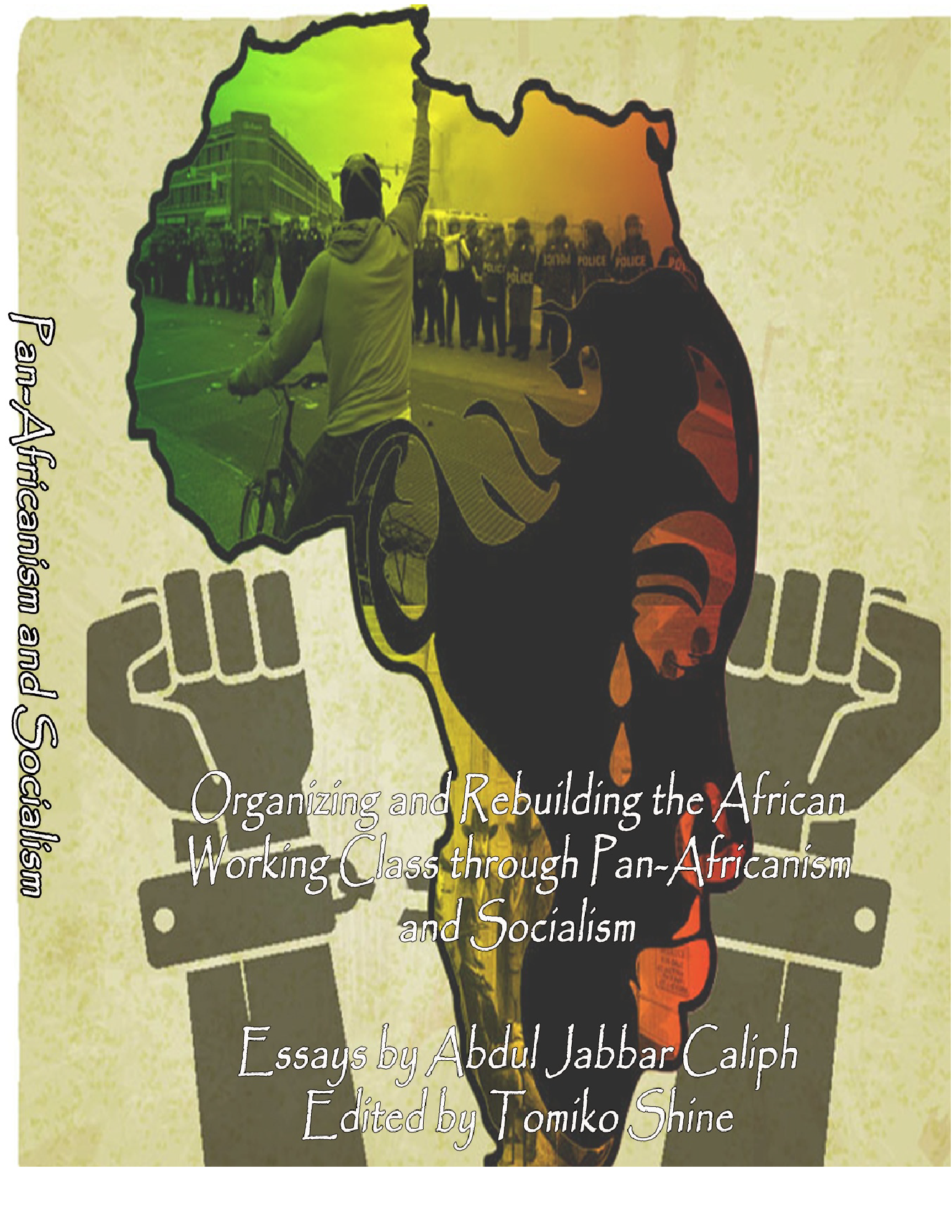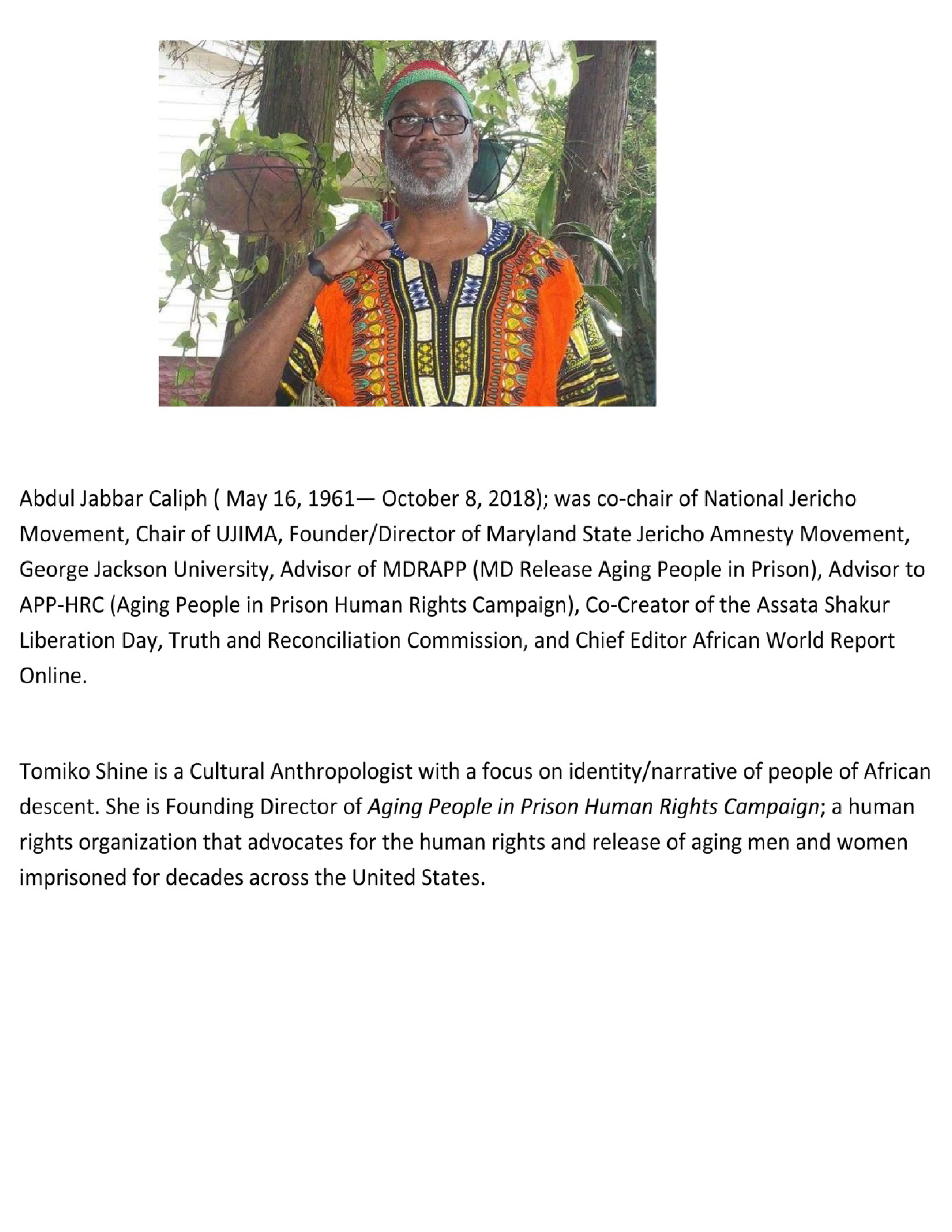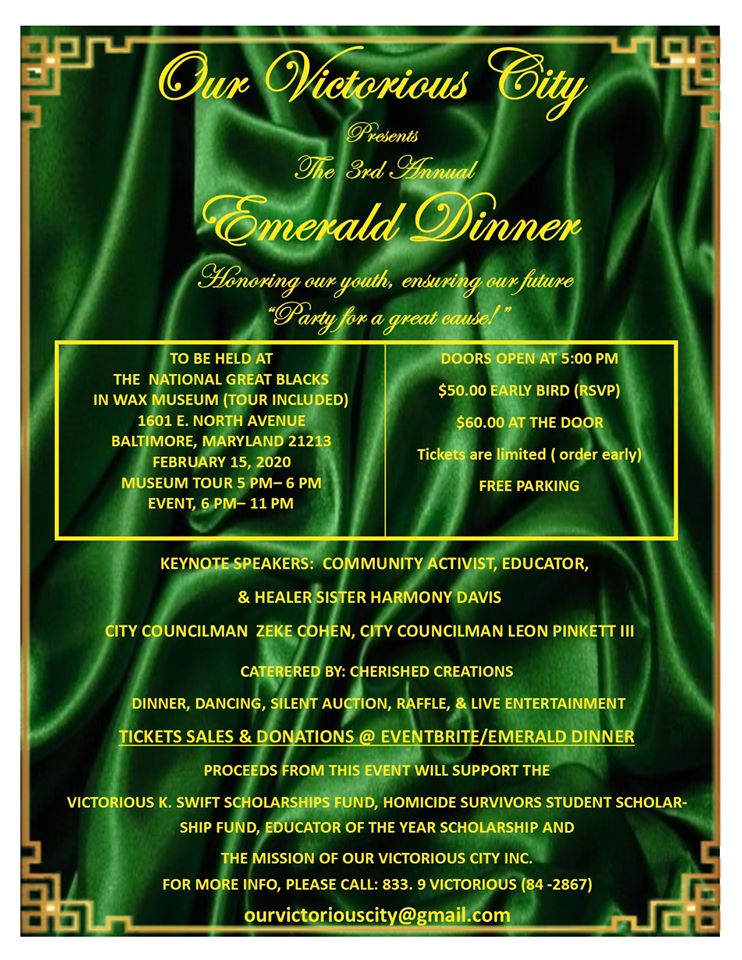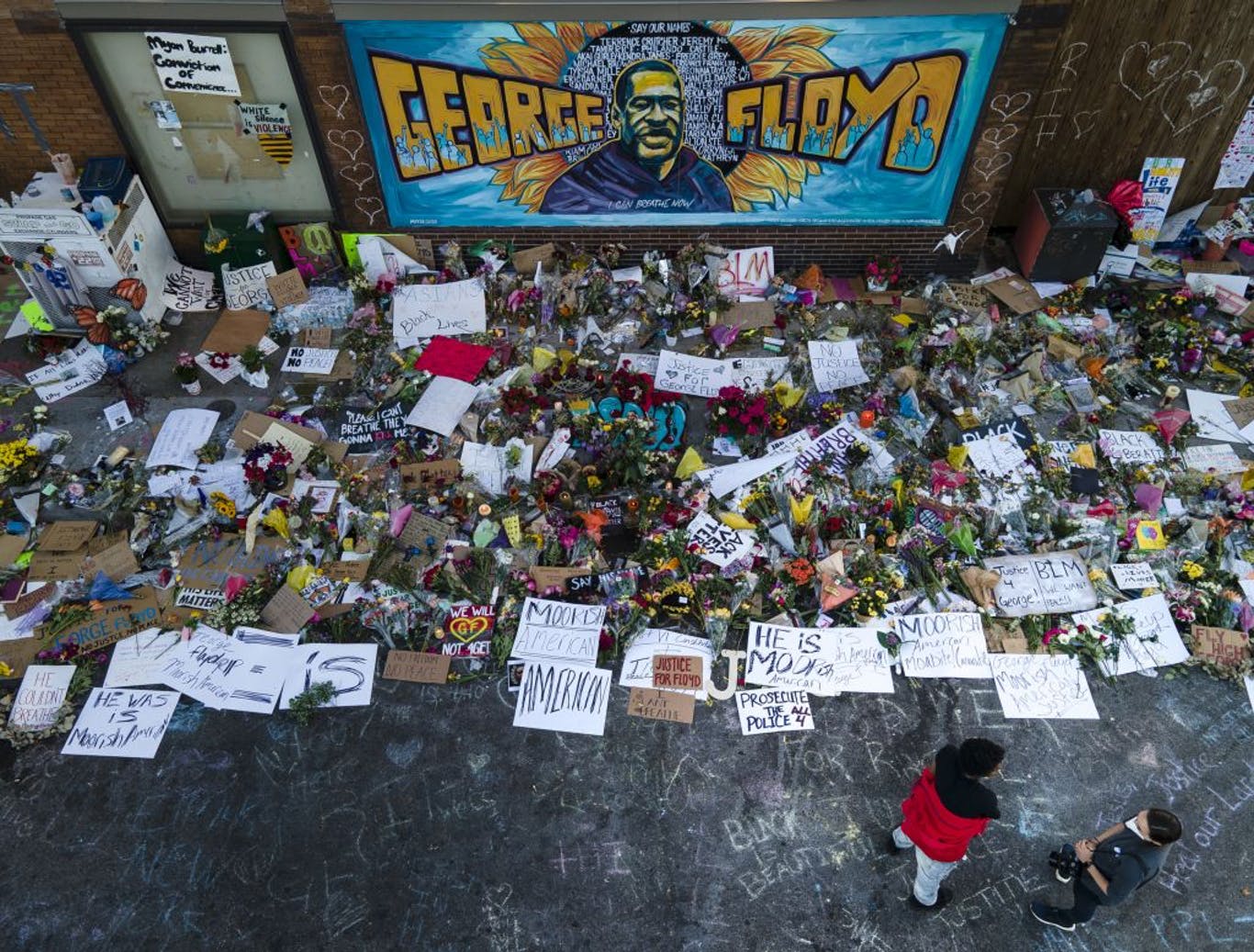 By now, we have all seen the images and the videos. We have read the articles. we have heard the analyses of the news reporters, the community activists and the politicians. Some of you have probably seen everything we’re about to recount in this post. We are certainly aware of the incident that sparked all the grief over the past week, despite the ongoing concerns about the Covid-19 Coronavirus. None of us have been able to escape the upheaval that has followed in the wake of the murder of George Floyd by four Minneapolis police officers, whose knees compressed his neck and torso for over nine minutes until he died, pleading for breathing room and calling for his deceased mother, cries that went callously unheeded by his killers in blue. Bystanders who pleaded with the officers to allow Floyd to breathe were similarly ignored.
By now, we have all seen the images and the videos. We have read the articles. we have heard the analyses of the news reporters, the community activists and the politicians. Some of you have probably seen everything we’re about to recount in this post. We are certainly aware of the incident that sparked all the grief over the past week, despite the ongoing concerns about the Covid-19 Coronavirus. None of us have been able to escape the upheaval that has followed in the wake of the murder of George Floyd by four Minneapolis police officers, whose knees compressed his neck and torso for over nine minutes until he died, pleading for breathing room and calling for his deceased mother, cries that went callously unheeded by his killers in blue. Bystanders who pleaded with the officers to allow Floyd to breathe were similarly ignored.
Given the graphic nature of the scene, four armed police officers restraining a handcuffed man and essentially choking and suffocating him to death on camera, perhaps one should not be surprised at what happened less than two days later: Minneapolis erupted into chaos, with angry protests morphing into a sometimes-violent uprising that not only evoked the rebellions that followed the March 3, 1991 beating of Rodney King, but as they quickly spread from city to city across the United States (and finally to cities in Europe as well), brought back the spectre of the nationwide conflagrations that followed the April 4, 1968 assassination of the Rev. Martin Luther King, Jr. Some certainly saw the apocalyptic destruction of modern civilization as they declared the return of the urban riots of the Sixties; still others described the rebellions as the harbingers of a long-awaited people’s revolution, often promised but never fully delivered.
Uprisings that follow these atrocities often elicit confusion among the people. Why are they burning their own neighborhoods? Why do the police so often seem to be regarded as the enemy of the protesters? What are our political leaders doing about this? How will this bring about a new Utopia of truth and justice? Why aren’t more police officers arrested and convicted for killing us in cold blood? And how will we get out of this vicious cycle of complacency, shock, anger, despair, denial and complacency again?
THE INTERNATIONAL COMMUNITY REACTS TO THE KILLING OF GEORGE FLOYD
The United Nations responded with an expression of outrage at Floyd’s killing, which has increasingly been described as a murder. Michelle Bachelet, former president of Chile and current UN High Commissioner for Human Rights, released this statement:
United Nations Human Rights Office of the High Commissioner
UN Human Rights Chief urges “serious action” to halt US police killings of unarmed African Americans
GENEVA (28 May 2020) – UN High Commissioner for Human Rights Michelle Bachelet on Thursday condemned the killing of George Floyd, an African American man whose death in police custody on Monday was captured on video and has led to serious ongoing protests in Minneapolis.
“This is the latest in a long line of killings of unarmed African Americans by US police officers and members of the public,” Bachelet said. “I am dismayed to have to add George Floyd’s name to that of Breonna Taylor, Eric Garner, Michael Brown and many other unarmed African Americans who have died over the years at the hands of the police — as well as people such as Ahmaud Arbery and Trayvon Martin who were killed by armed members of the public.”
“The US authorities must take serious action to stop such killings, and to ensure justice is done when they do occur. Procedures must change, prevention systems must be put in place, and above all police officers who resort to excessive use of force should be charged and convicted for the crimes committed.”
“I welcome the fact that the Federal authorities have announced that an investigation will be prioritized,” she said. “But in too many cases in the past, such investigations have led to killings being deemed justified on questionable grounds, or only being addressed by administrative measures.”
“The role that entrenched and pervasive racial discrimination plays in such deaths must also be fully examined, properly recognized and dealt with,” she added.
While saying she understood the anger unleashed by Floyd’s killing, Bachelet urged people in Minneapolis and elsewhere to protest peacefully.
“Violence and destruction of property won’t solve the problem of police brutality and enshrined discrimination,” she said. “I urge protestors to express their demands for justice peacefully, and I urge the police to take utmost care not enflame the current situation even more with any further use of excessive force.”
International Pan-Afrikan activists also responded to this latest atrocity, including writing letters of appeal directly to US president Donald J. Trump. Dr. Barryl Biekman, International Facilitator of the African Union African Diaspora Sixth Region of Europe, Tiye International and keynote speaker at the January 2015 launch of the United Nations International Decade of People of African Descent at the UN Headquarters in New York City, wrote a letter appealing to Trump’s sense of justice, diplomacy and statesmanship. That Trump possesses neither of these qualities did not deter her from making this appeal, though she may have known that a favorable and sincere response from Trump would be unlikely. Following is the text of her appeal.
Urgent Letter To The President of the United States of America
H.E. D.J.Trump
Regarding the Killing of Mr. George Floyd
May 30th, 2020
Dr. Barryl A. Biekman, Coordination & Monitoring Working Group UN International Decade People of African descent (The Netherlands)
Excellency,
Respectful greetings,
I hereby respectfully ask your attention to the following;
During an election year for the Presidency of the United States of America and the fight against the Covid-19 pandemic, I am hopeful that you will receive this letter, read it and respond to it with an assurance that new policies will be enacted so that such atrocities, such as what recently happened to Mr. George Floyd in Minneapolis will not be tolerated again.
I humbly approach you as the civil society speaker, elected by H.E. Sam K. Kutesa, President of the United Nations General assembly, to speak (https://app.box.com/s/8bg9s1t0ez9sgmmiar61k7wix97jv1h5) on behalf of the global civil society People of African descent during the launching of the International Decade for People of African descent (2015-2024) on December 10th, 2014 at the 69th session of the UN General Assembly.
This Decade is based on the UN Resolution 68/237 (https://www.ohchr.org/Documents/Issues/Racism/IWG/session12/A.RES.68.237.pdf). The mission (https://www.un.org/en/observances/decade-people-african-descent/programme-activities) of the Decade is summarized in the title of the Decade namely: ‘Recognition, Justice and Development’. A title that includes the themes on which the Decade is addressed. The main objective is that:
– People of African descent around the world, in all regions and countries, experience the full enjoyment of all human rights and fundamental freedoms, as recognised in the Universal Declaration of Human Rights, the International Convention on the Elimination of All Forms of Racial Discrimination as well as other relevant international and regional human rights instruments.
Regarding the killing of Mr. Floyd in Minneapolis, U.S., I would like to bring into memory my statement (https://app.box.com/s/4sgg9vpjvd95capjmribd36gxc4m6boy) during the launching of the Decade whereby I emphasized that: ”….When an African American man is strangled to death by the police on the streets of New York we the people of African descent feel the same that we cannot breathe”.
And this time more than ever the killing of Mr. Floyd has shocked the world, it has shocked all People of Good Will in the Netherlands. It has shocked members of the world wide African (diaspora) family.
Excellency, we are shocked!
This here: “…..We add our voices in solidarity with all those demonstrating to demand justice for the victims of racially based police brutality. This situation makes it clear that institutionalized racism is still alive and that the campaigns against all forms of multiple racism & racial profiling (These include Afrophobia, the specific term to define the forms of multiple racism against African people) as well as the symbolic & psychological violence situation in different countries must be intensified” is another statement that I speak out during the launching of the Decade.
In 2020, five years later of the International UN Decade, we are still experiencing the killing of defenseless ‘African American men’ by police. That means that the intention of my statement on the International UN Human Rights Day on December 10, 2014, and the request on behalf of the global civil society African family did not penetrate to the capillaries of the police system.
Let me reiterate my appeal that I have made towards the United Nations of which the United States of America is a member of:
”….On behalf of the world wide African diaspora families I invite all of you to join hands with us for the implementation of the Program of Activities in the spirit of “Recognition, Justice and Development.” Because this Decade requires the committed support and involvement of all international, regional, national, sectors of society, stakeholders and people of Good Will in the world “.
The invitation to make this “Reparation Decade” a great success was also addressed to the United States of America.
Excellency, President Trump,
I’m certain that you will do everything in your power to effect immediate policies that discourage such inhumane actions against African Americans and other minorities. In concrete terms I urge you to implement (city diplomacy) policies that will overhaul the police force to act as protectors of all citizens.
Thank you for your swift action to the urgent matter. I am certain we all want peace, stability and harmony. So George Floyd and his family too.
Respectfully,
Dr. Barry A. Biekman
PROMINENT US ACTIVISTS RAISE THEIR VOICES
North Carolina-based social justice and religious leader Rev. William Barber, who has been organizing a new Poor People’s Campaign on a national level for years, wrote a commentary that was featured in an article by Fisher Jack on the Web site of the Electronic Urban Report (EUR), Screams, Tears and Protests Are A Mourning for Our Democracy on June 1 (https://eurweb.com/2020/06/01/social-justice-leader-rev-barber-screams-tears-and-protests-are-a-mourning-for-our-democracy/):
America must listen to the protests in the streets if it is ever to heal the wounds caused by both police and police brutality, social justice leader Rev. Dr. William J. Barber II said as he delivered a pastoral letter on Pentecost Sunday.
“ … I want us to look at those crowds deeply in the street. Listen to them, hear them, see the diversity,” Barber said from Greenleaf Christian Church in Goldsboro, North Carolina, where he is the minister. “And remember that in our history, slavery was abolished, women did gain the right to vote, labor did win a 40-hour workweek and a minimum wage. The civil rights movement in the face of lynching … did expand the right to vote for African Americans.”
Sociopolitical Commentator Earl Ofari Hutchinson wrote a commentary for EUR, Many Hands Created the Frankenstein Monster Derek Chauvin (https://eurweb.com/2020/06/01/earl-ofari-hutchinso9n-many-hands-created-the-frankenstein-monster-derek-chauvin/).
SPORTS FIGURES SPEAK OUT
Fox News host Laura Ingraham’s condescending and disrespectful warning for NBA superstar LeBron James and other sports figures to “shut up and dribble” instead of speaking out against injustice seems to be (thankfully) falling on deaf ears. Gradually, athletes are speaking up. New Orleans Saints safety Malcolm Jenkins, long an advocate for the people’s rights especially in cases of police brutality and abuse, chided his team’s quarterback Drew Brees after Brees’ tone-deaf criticism of those who protested by taking a knee during the national anthem, as Jenkins and Colin Kaepernick have done. Players on other teams around the league began to join in the criticism, and former player and television analyst Shannon Sharpe even suggested Brees retire from football because of his remarks. Brees was forced to issue a clarification of his remarks and an apology to those anti-police brutality activists he might have offended (https://www.nbcsports.com/washington/ravens/shannon-sharpe-says-drew-brees-should-retire-after-anthem-comments).
Former player and star wide receiver Anquan Boldin, who played for the San Francisco 49ers, Arizona Cardinals and Baltimore Ravens (whom he helped win a Super Bowl in 2012), has been speaking out against police brutality and corruption ever since his cousin Corey Jones was killed in 2015 by a Florida police officer. Boldin has spoken to focus groups and Congressional panels about this, co-founded the Players’ Coalition with Jenkins to raise awareness about racial justice and social inequality, and he has come to the rescue again, as detailed in the commentary As George Floyd’s death sparks anger and hopelessness, Anquan Boldin urges us to fight system, by Mike Jones, June 2, 2020, USA TODAY.
… “Did I think it was going to be easy?” asked Boldin, who retired almost three years ago to devote himself fully to fighting social injustice.
“No. I’ve always been a fighter. In my neighborhood, if you didn’t fight, good luck! But that’s what we’re going to have to continue to do. Not some of us, all of us.”
(https://www.usatoday.com/story/sports/nfl/columnist/mike-jones/2020/06/02/anquan-boldin-george-floyd-players-coalition-racial-injustice/5312217002/)
Super Bowl-winning quarterbacks Patrick Mahomes and Russell Wilson spoke out as well, and were profiled in the article Patrick Mahomes and Russell Wilson: Senseless murder, racism cannot continue, by Jori Epstein, June 1, 2020, USA TODAY
(https://www.usatoday.com/story/sports/nfl/2020/06/01/chiefs-patrick-mahomes-seahawks-russell-wilson-george-floyd-protests/5309716002/).
POLICE EXPRESSIONS OF REGRET AND SUPPORT DURING PROTESTS
While in several cities, there have been indications of increased cooperation between police and protesters, with the city of Seattle cancelling curfew on the night of Wednesday June 3, and with police officers and National Guard troops kneeling with protesters and in some cases marching with them, some police officials have taken more overt and official stands in solidarity with protesters and with victims of police brutality.
Houston police chief Art Acevedo walked with protesters and made several important and supportive speeches over the weekend of May 28-31 to the community in George Floyd’s hometown about their collective feelings of loss, the need for justice and the need to prevent opportunists from using his death to sow destruction. Several links to this story follow:
https://www.rev.com/blog/transcripts/houston-police-chief-art-acevedo-speech-transcript-amid-george-floyd-protests
https://www.channel3000.com/police-chief-absolutely-sorry-over-george-floyds-death-after-fiery-protests-prompt-calls-for-peace/
https://www.click2houston.com/news/local/2020/05/31/blog-mayor-sylvester-turner-and-hpd-chief-art-acevedo-speak-local-pull-up-and-praise-event/
Minneapolis police chief Medaria Arradondo expressed regret over the responsibility felt by his own police department in creating the “deficit of hope” felt by many in the city (https://www.channel3000.com/police-chief-absolutely-sorry-over-george-floyds-death-after-fiery-protests-prompt-calls-for-peace/).
Santa Cruz police chief Andy Mills took part in several marches and protests against the brutality of his “brothers in blue”. Photos of him kneeling with Santa Cruz mayor Justin Cummings have made headlines. The pose is reminiscent of that taken by former NFL quarterback Colin Kaepernick, whose own peaceful kneeling protests have led to his condemnation as a traitor by Trump and his unemployment in football for the last several years.
https://www.nbcbayarea.com/news/local/santa-cruz-mayor-police-chief-kneel-in-peaceful-protest/2300401/
https://www.latimes.com/california/story/2020-06-02/santa-cruz-police-chief-kneeling-george-floyd-protest
https://www.santacruzsentinel.com/2020/06/01/image-of-santa-cruz-police-chief-mayor-kneeling-packs-a-punch/
https://nypost.com/2020/05/31/santa-cruz-police-chief-kneels-with-peaceful-protesters/
https://patch.com/california/santacruz/santa-cruz-police-chief-kneels-alongside-peaceful-protesters
Are these expressions of regret and solidarity from a few police officers and chiefs indicative of some major change in attitude among law enforcement? Certainly not. In a more recent development, police in Buffalo, New York pushed a 75-year-old protester to the ground, where he hit his head and began bleeding from his ear. Police officers did not stop to render aid to the man they pushed, and their official report claimed the man had tripped and fallen. (At this writing, the man was in a local hospital in serious but stable condition.) When the two officers directly involved in the incident were disciplined, 57 members of that unit resigned in protest … of the disciplinary action. And other incidents of brutality by police have continued to occur in cities across the country even during the protests which were themselves sparked by an act of police brutality.
Also, just because police in places like Santa Cruz, Houston, Minneapolis, Seattle and Los Angeles have expressed contrition now, does not in any way guarantee that those same departments, and perhaps even some of the same officers, will not commit their own acts of brutality in the future (especially since Minneapolis, where Floyd was killed, remains with a rather abysmal record in the area of relations between the police and the public). Such is the degree to which the public trust in police has been damaged.
TRUMP’S CHURCH STUNT
In the face of the often-angry and always assertive public protests, the condemnations of police brutality from commentators and athletes, and the political pressure that increases with each new revelation about the incident and the apparent callousness that was seen in the expression on Minneapolis police officer Derek Chauvin’s face as Floyd lay dying, the Trump administration, while admitting that the loss of Floyd’s life was a tragedy, seemed increasingly unrepentant, especially with regard to the degree to which Trump’s own bombast has contributed to the hyper-militarized “us vs. them” attitude of many police officers. Trump appeared motivated to use whatever visuals he could find to bolster his Nixonian “law-and-order president” image.
On Monday, June 1, one day after a fire had been set in the basement of historic Saint John’s Church near the White House, Trump dispatched federal police to disband a crowd of peaceful protesters in Lafayette Park in a surprise attack using flash-bang grenades and teargas, then led a small group that included Defense Secretary Mark Esper, Attorney General William Barr, White House national security adviser Robert O’Brien, White House press secretary Kayleigh McEnany and White House chief of staff Mark Meadows across the park to a spot in front of the church where he stood with a copy of the Bible in what was termed a “photo op” and a “stunt” by detractors, which included Bishop of the Episcopal Diocese of Washington Rev. Mariann Budde and presiding Bishop Michael Curry, both of whom excoriated Trump for using the church as a prop, a mere backdrop “for partisan political purposes.”
https://abcnews.go.com/US/wireStory/dc-episcopal-bishop-outraged-trump-church-visit-71011653?fbclid=IwAR3PzvLe-T3i4jEgFd9LkBZoWB-DzRVuRcbXODmgsTXLuxU_Pkuc1xqcxU8
https://www.nbcnews.com/politics/politics-news/religious-leaders-lawmakers-outraged-over-trump-church-visit-n1221876?cid=sm_npd_nn_fb_ma
https://www.washingtonpost.com/religion/bishop-budde-trump-church/2020/06/01/20ca70f8-a466-11ea-b619-3f9133bbb482_story.html
https://www.msnbc.com/msnbc/watch/most-gop-senators-avoid-commenting-on-trump-s-church-visit-84245061843?cid=sm_npd_ms_fb_ma
TRUMP AND HIS MINIONS TRY TO FLEX THEIR MUSCLES
As White House officials sought ways to employ the National Guard and local police of Washington DC (https://www.forbes.com/sites/lisettevoytko/2020/06/02/white-house-officials-asked-if-they-could-take-over-dcs-local-police/), other states, and even the US military (which would violate the Posse Comitatus Act of 1878, https://en.wikipedia.org/wiki/Posse_Comitatus_Act), Trump himself openly considered invoking the Insurrection Act of 1807 (https://en.wikipedia.org/wiki/Insurrection_Act_of_1807), a move which was momentarily opposed by Defense Secretary Mark Esper until pressure from Trump caused him to withdraw his objection.
McEnany on Insurrection Act: If Needed, President Trump Will Use It, Posted By Ian Schwartz, June 3, 2020 (https://www.realclearpolitics.com/video/2020/06/03/mcenany_on_insurrection_act_if_needed_president_trump_will_use_it.html)
On June 3, Arkansas Senator Tom Cotton (R), no stranger to controversial hard right-wing statements, called on Trump to engage the military to quell protests in an opinion piece in the New York Times, Send In The Troops (https://www.nytimes.com/2020/06/03/opinion/tom-cotton-protests-military.html). This led to much rancor at the Times, with several staffers warning that the column could put Black staff in danger (https://www.msn.com/en-us/movies/news/new-york-times-staffers-react-with-fury-over-tom-cottons-send-in-the-troops-op-ed/ar-BB1509tJ).
THE LONG ARM OF THE LAW CATCHES UP TO THE LONG ARM OF THE LAW
The old saying goes, “Truth crushed to earth shall rise again .” When these crimes are committed in such brazen fashion, it seems silly for the perpetrators to believe that they will escape justice, or at least public exposure, for long. The names of the police officers who committed acts of brutality against unarmed civilians, especially those of Afrikan descent, are always announced as they go before a police disciplinary board or, in rarer cases, a criminal court. And the police departments for whom they worked are often exposed as hotbeds of police brutality and corruption.
As the four officers involved in the killing of George Floyd moved toward formal indictments by the Minnesota Attorney General, the troubles for the Minneapolis police force as a whole began to escalate on June 3, as the Minneapolis Public Schools severed their decades-long relationship with the police (https://m.startribune.com/minneapolis-public-schools-terminates-contract-with-police-department-over-george-floyd-s-death/570967942/).
In Atlanta Georgia, six Atlanta cops who participated in a violent tazing and arrest of college students during the protests there were arrested and charged, according to the Electronic Urban Report (EUR, https://eurweb.com/2020/06/03/six-atlanta-police-officers-charged-over-excessive-force-on-college-students-video/).
Back in Minneapolis, on June 3, Minnesota Attorney General and former Minnesota Congressman Keith Ellison, who had been asked two days earlier by Minnesota Governor Tim Walz to take charge of the investigation of the killing of George Floyd, announced that former Minneapolis police officer Derek Chauvin would be charged with second-degree murder as well as third-degree murder and second-degree manslaughter, and that the other three officers who participated in George Floyd’s arrest and murder, J. Alexander Kueng, Thomas K. Lane and Tou Thao, had been arrested and charged with aiding and abetting second-degree murder and aiding and abetting second-degree manslaughter. He acknowledged that the case would be a difficult one, but that the evidence supported the enhanced charges against the officers.
Attorney General Keith Ellison upgraded charges against officer who knelt on George Floyd’s neck; charged other 3 involved, by Stephen Montemayor and Chao Xiong, Minneapolis Star Tribune, June 4, 2020 (https://www.startribune.com/four-fired-mpls-officers-booked-charged-in-killing-of-george-floyd/570984872/)
As more evidence comes to light and activists make increased calls for the charges to be elevated even further to first degree murder (which would require prosecutors to prove premeditation and might create difficulties for securing a conviction), we can expect more developments regarding the legal case.
POLITICAL BLOWBACK?
Sooner or later, a political price is usually paid. Sometimes, it comes in the form of a public rebuke by a respected former political leader or a former member of the current administration. Former president George W. Bush (2001-2008) delivered a speech on June 2, stating that he and former First Lady Laura Bush were “anguished” by the brutal suffocation of George Floyd and “disturbed by the injustice and fear that suffocate our country,” called for the US to “end systemic racism”, “examine our tragic failures” and protect the right of people to protest. The speech has been called a “rare silent rebuke” of Trump and his behavior.
(https://www.thenewcivilrightsmovement.com/2020/06/end-systemic-racism-bush-43-delivers-rare-silent-rebuke-to-trump-calls-for-law-enforcement-to-protect-protestors/)
Former Defense Secretary James Mattis continues to show that, despite his “Mad Dog” nickname, he was among the more level-headed members of Trump’s Cabinet. He delivered a blistering critique of Trump’s behavior, calling him “the first president in my lifetime who does not try to unite the American people—does not even pretend to try. Instead, he tries to divide us.”
https://deadline.com/2020/06/donald-trump-james-mattis-george-floyd-racial-justice-1202950664/
https://www.cnbc.com/2020/06/03/read-mattis-statement-on-trumps-handling-of-nationwide-protests.html
Sometimes, the political price is manifested in plummeting approval ratings (though Trump has somehow managed to survive over the last three and a half years despite approval ratings that are, for all practical purposes, underwater).
But eventually, even poor performance such as this will be exposed and the opportunity will be presented for the people to punish such malfeasance at the ballot box. In Ferguson, Missouri, where Michael Brown was killed five years ago, the first Black and first woman mayor was elected in 65-year-old Ella Jones, as reported by the Web site of the Electronic Urban Report (EUR, https://eurweb.com/2020/06/03/ella-jones-elected-as-first-black-mayor-of-ferguson-missouri/).
Also, the existing political bodies eventually work up the power in numbers, or just the courage within their existing members, to take concrete action, though this often takes far too long. EUR also reported that the Congressional Black Caucus, under the direction of its current Chair, Congress Member Karen Bass (D-California), has announced it will “forcefully respond” to cases of police brutality (https://eurweb.com/2020/06/03/congressional-black-caucus-looks-to-forcefully-respond-to-police-brutality-crisis/).
In Los Angeles, in a move that drew opposition from police unions as well as right-wing commentator Rush Limbaugh, mayor Eric Garcetti announced a plan to cut the budget of the police department and divert those funds to programs to lift up marginalized communities and communities of color (https://www.independent.co.uk/news/world/americas/los-angeles-police-department-budget-cuts-defund-lapd-eric-garcetti-press-conference-a9549001.html#gsc.tab=0):
Los Angeles to defund police department by $150m and instead invest in minority communities
Mayor Eric Garcetti says: ‘It is time to move our rhetoric towards action to end racism in our city’
Chris Riotta, New York
Los Angeles officials have proposed sweeping cuts to the city’s annual budget and police department while calling for that money to be invested in marginalized communities after nationwide protests over the death of George Floyd.
Mayor Eric Garcetti announced at a press conference on Wednesday night the city would “identify $250 million in cuts so we can invest in jobs, in health, in education and in healing” following demands from the Black Lives Matter movement and other activist groups to divest funding from the Los Angeles Police Department.
Those groups called for the city to implement a “People’s Budget” that would fund housing and environmental projects, as well as promote opportunities for people of colour, Los Angeles Magazine reported.
In announcing the budgetary cuts, the mayor added: “It is time to move our rhetoric towards action to end racism in our city.”
The announcement comes after Los Angeles City Council president Nury Martinez proposed cutting up to $150 million from the LAPD and reinvesting those funds into communities of colour.
Ms Martinez explained the proposed cuts in a statement that read in part: “If we are going to finally end the sin of racism and all of its illogical, dehumanizing and sometimes deadly consequences, including in our police department, then we have to provide real solutions for real people who need our assistance.”
Eileen Decker, president of the city’s police commission, confirmed at the press conference on Wednesday that her panel would seek to identify funds that could be divested from the LAPD.
The proposed cuts were seen as a response to days of protests throughout Los Angeles and across the country, with those participating in the marches demanding an end to police brutality and the disproportionate use of excessive force against people of colour.
Prior to the nationwide protests, Mr Garcetti proposed increasing the police department’s budget by seven percent. Under the previous budget proposals, the LAPD would receive nearly 54 percent of the city’s general fund while other departments faced major cuts.
The mayor said more details would come at a press conference on Thursday night about how the city would reinvest its funding, and that a new Civil and Human Rights Commission would begin meeting next week.
THE CALL FOR “REFORM”: GOING FROM THE WOLF BACK TO THE WOLF AGAIN
When the protests finally cool off and the analysts are done with their speculation, ultimately the question will have to be asked and answered, What do we do to prevent this from happening again, and again, and again? A number of ideas have already been proposed, and some even embarked upon, such as increasing community policing, instituting police review boards that are made up of civilians who are elected, and even partially defunding police departments as Los Angeles’ mayor Garcetti is proposing, though no one outside of “revolutionary activist” circles has so far proposed abolishing police departments altogether. In the end, in order for these atrocities to stop, there will at least need to be a fundamental change in the relationship between police and the communities they interact with. Even so, the danger is that the very entity that inspires so much distrust will be granted inordinate control over the process. What makes less and less sense with each incident is that for decades now many elected officials, media personalities (including reporters and talk show hosts) and community leaders want to try to deal with a long history of justifiable distrust of the police by turning back to those same police for direction on how to solve this issue. Malcolm X called that going from the wolf to the fox, or maybe more accurately, back to the wolf again. The police claim to wrack their brains wondering why they are not trusted while they continue the very behavior (including murder and covering for murderers) that provokes the distrust and rage in the first place. Add to that their slave-catcher historical origins and the fact that they behave this way everywhere in the world where we live, and it boggles the mind why they still haven’t figured this out despite their unprincipled self-interest as demonstrated by the behavior of the vast majority of their police unions, most prominently the Fraternal Order of Police (FOP).
If we ever establish a true Pan-Afrikan Cooperative Coalition and re-start the kind of local Community Town Hall Meetings where the members of the grassroots community can come together and craft their own ideas for solutions to the scourge of police brutality and misconduct (among other concerns), one thing we need to look at is how we can build our own community-based means of ensuring the security and civility of our neighborhoods, so we will be less dependent on police departments to provide the kind of strong but caring and principled security that they have in too many cases proven incapable of delivering. This may require more outreach to street organizations, some of whom have their own serious issues with respect to criminality and misbehavior, to try to mobilize them into becoming community benefactors.
LACK OF ORGANIZATION ALLOWS OPPORTUNISTS AND PROVOCATEURS TO INTERFERE
The other major issue is the degree to which the principled protest movement was, especially in the early days of the uprisings, misdirected from their mission of expressing righteous anger into committing acts of random mayhem and petty thievery. Every uprising seems to contain three distinct groups: the largest group being the real activists, community members and citizens who wish to directly and defiantly protest the latest atrocity by the police state; a smaller group of opportunists who take advantage of the presence of the masses of people and the cover of darkness to break into and loot businesses, sometimes the businesses of the people of the community themselves; and a third, even smaller group of provocateurs that has no specific social-justice agenda (they may, in fact, be opposed to the aims of the main group and see an opportunity to discredit their cause with some well-placed acts of mayhem, or have political aims entirely unrelated to the issue at hand) that is there simply to cause wanton destruction in the form of burning cars, buildings and barricades in the street. Some individuals may be motivated by a mixture of these objectives, and many of them are ready with explanations designed to justify their actions as “revolutionary work” or “fighting the power”, though the only “work” they are actually seen doing is setting fire to a building or loading a television into the trunk of a car.
Reports of White provocateurs, for example, who began vandalizing buildings including spray-painting “Black Lives Matter” and anti-police slogans on windows while invoking the names of George Floyd, Philando Castille, Sandra Bland, Breonna Taylor and other victims of police murder, have proliferated (https://atlantablackstar.com/2020/06/01/white-provocateurs-accused-of-disrupting-peaceful-george-floyd-protests-with-rioting-some-accused-of-giving-bricks-to-group-of-black-men/; https://www.mirror.co.uk/news/us-news/george-floyd-protests-hijacked-white-22116897), though the claims by the Trump administration that the amorphous anti-fascist group “Antifa”, which Trump seeks to label a domestic terror organization, was behind the mayhem have not thus far been supported by evidence.
The fact is that in any uprising such as this there are a number of groups that will come out of the woodwork, as opposed to those who have been working tirelessly to organize our community at the local level. In Baltimore, Maryland, for example, “veteran” organizations have proposed a variety of strategies for our people’s uplift for years and even decades, from the Pan-Afrikan Liberation Movement (PLM) to Our Victorious City (OVC, https://www.ourvictoriouscity.org/home) to Teaching Artists Institute (https://www.facebook.com/teachingartist/?epa=SEARCH_BOX) to Leaders of a Beautiful Struggle (LBS, https://lbsbaltimore.com/) to the Maryland Council Of Elders (MCOE, https://www.facebook.com/mcoe1958/?ref=br_rs; https://bmorechristnewschr.wixsite.com/marylandcouncilofeld) to the Sixth Region Diaspora Caucus (SRDC, http://www.srdcinternational.org) and many other SERIOUS organizations and activists, as opposed to those that just surfaced to take advantage of the publicity brought by our response to the latest attack against our community. There are so many different organizations with different strategies because we are beset on multiple fronts, and not just police brutality, which is on graphic display right now. We are also threatened by environmental racism, healthcare disparity, political instability, political imprisonment, mass incarceration, human trafficking, deprivation of education, food insecurity, demonization by media, entanglement in the courts, cultural manipulation & appropriation, political imprisonment, economic marginalization and much more. We are under attack on many levels and as many activists in Baltimore and elsewhere have said many times before, we must be able to respond on many levels. But those many levels must be organized. Disorganization, and insufficient organization, allows opportunists and provocateurs, many of whom seem to have come out of nowhere and who we may not have heard of, to turn a righteous uprising into an unprincipled riot that will only elicit a response of mass condemnation from major media and violent reprisals from right wing militias as well as the police state. We must coordinate our responses so the true revolutionaries, those who are ready to build rather than just destroy, can work hand-in-hand with grassroots activists, businesses that work for the Community and Black Media to ensure that any Black response to White racism remains under control of Black activists committed to the Community and to Ma’at. This is why we need a Cooperative Coalition, and not one that is slapped together as a reactive measure to deal with the latest attack on our communities, but planned, organized and built as a proactive measure that can lead to a standing Pan-Afrikan United Front to respond to crises when they arise and develop forward-thinking strategies to build and lift up the community for everyone’s benefit.
Building such a Coalition is never easy. The reality of so many organizations with different missions that sometimes seem mutually exclusive of each other is the reason why a Cooperative Coalition is important, and why I talk about “Spokes of the Wheel” so much. People can pick the battle, or “spoke”, that speaks to them, be it economic, cultural, media, grassroots, spiritual, science or something else. And the different “spokes” can, and must, interact with each other to make sure one “spoke” works constructively with the others, that one “spoke” doesn’t counteract or disrupt the activities of others, and that the activities of each of them are timed in a strategic way so everyone’s work has the greatest and most beneficial effect. Sometimes, I must wait for your plan so I don’t step on it (like in football when the long pass play waits for several runs by the fullback to bring the defense’s safeties closer to the line of scrimmage). Sometimes I must go first to “set the table” for you (like in baseball when a leadoff hitter gets on base so the cleanup batter can belt the 3-run or grand slam home run). But we must be more strategic so the different groups with their different strategies can see their work finally bearing fruit and bringing success and victory for our people. And there is a role for all of us here, except those provocateurs and opportunists who thrive on our confusion and ultimately use it to bring us all down and leave us running laps instead of actually moving forward and making progress for our people and the world.
Like this:
Like Loading...
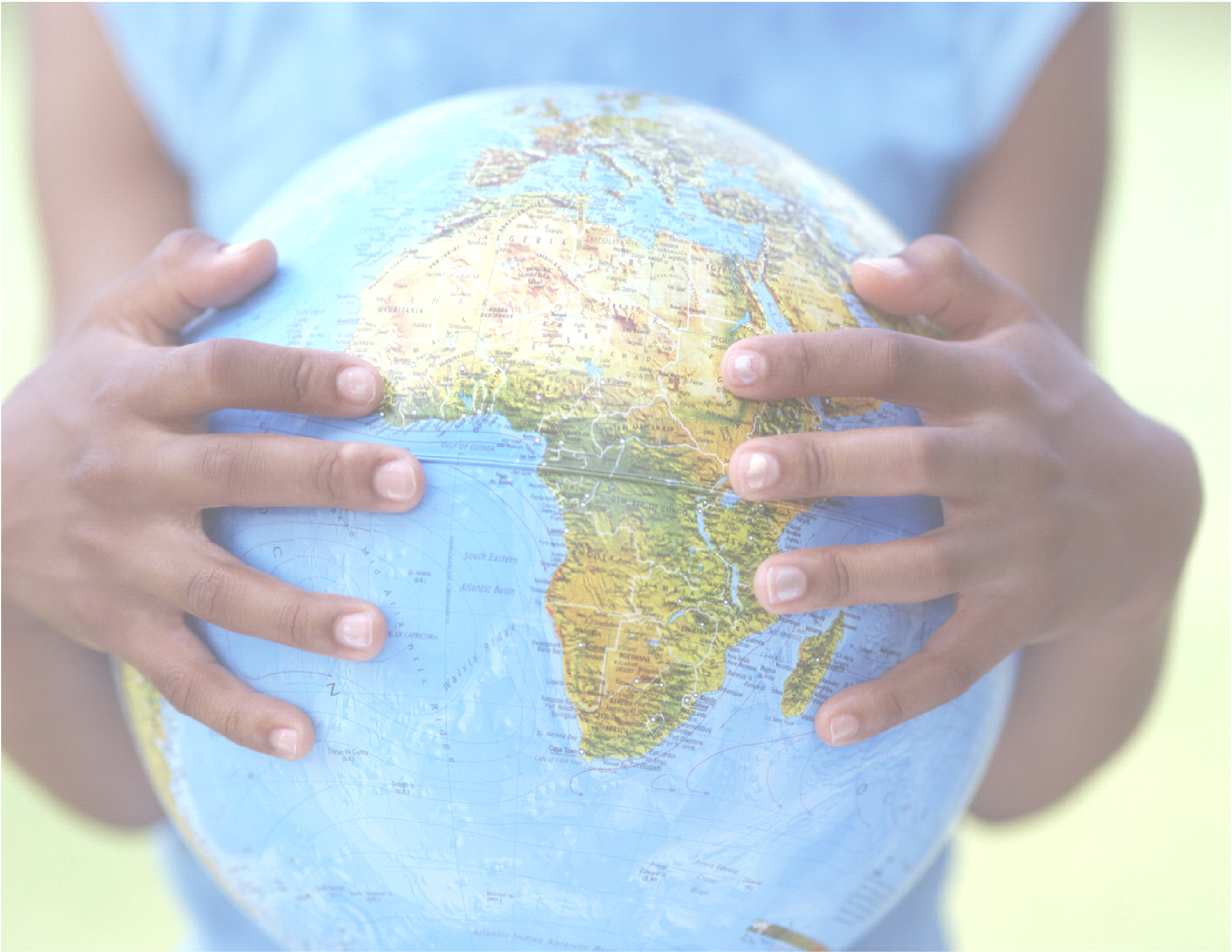 SRDC Summer Cultural Exchange Program
SRDC Summer Cultural Exchange Program
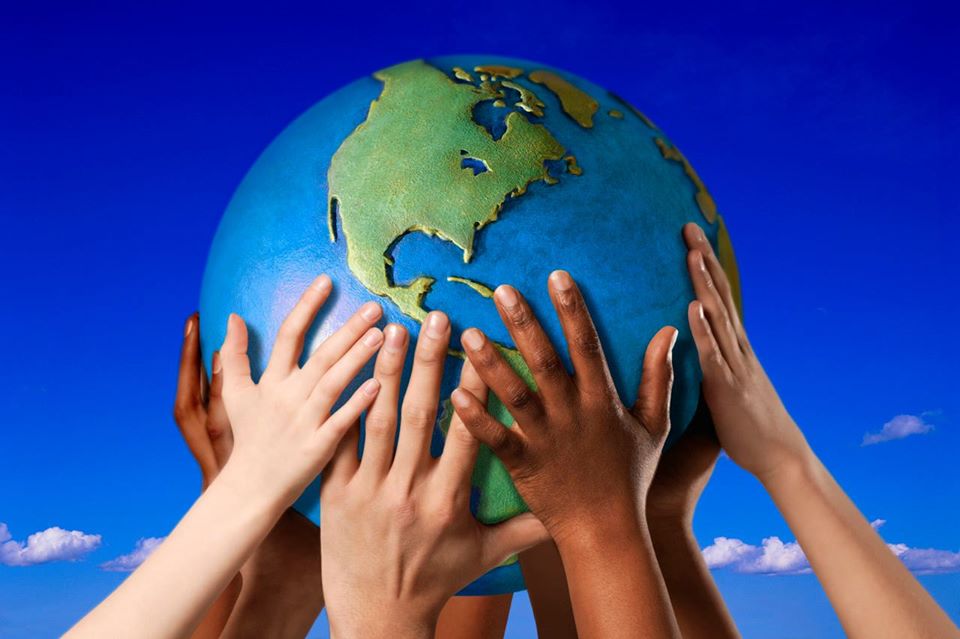

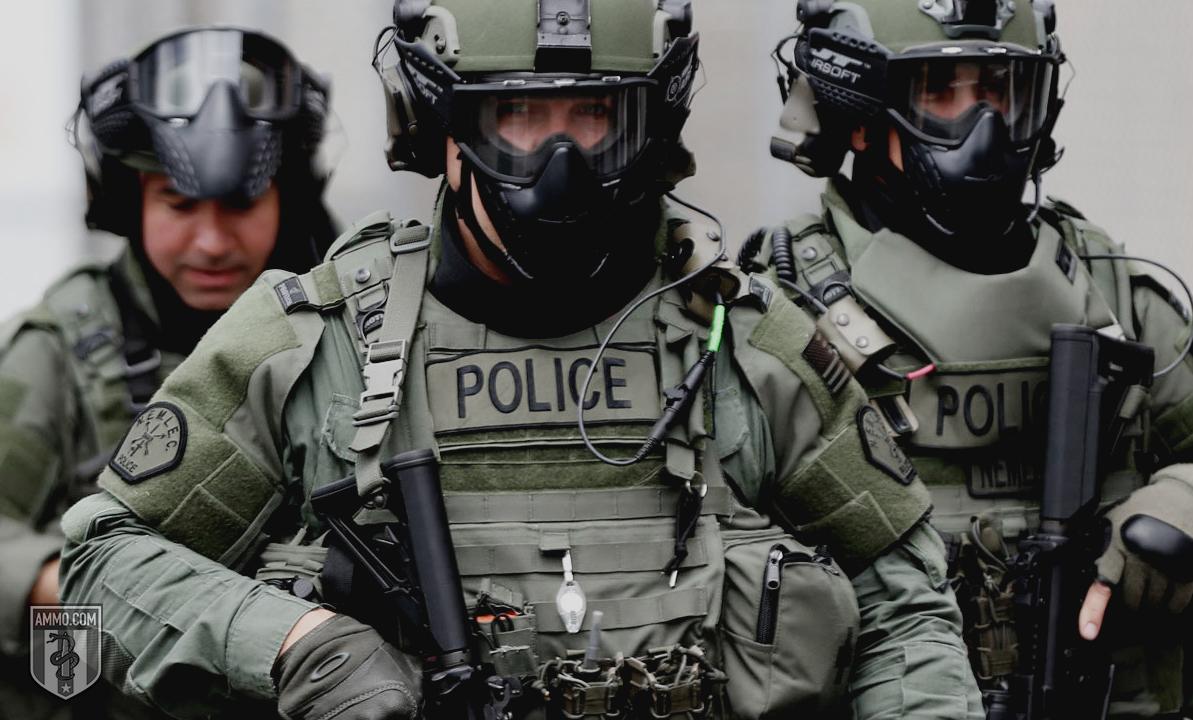 Weapons of War On Our Streets: A Guide to the Militarization of America’s Police (
Weapons of War On Our Streets: A Guide to the Militarization of America’s Police (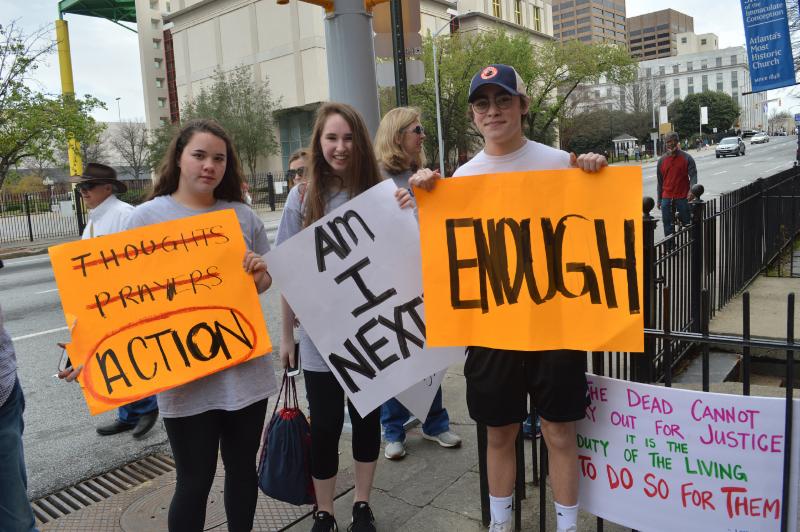 March 24, 2018 Atlanta “March for Our Lives in Atlanta” (Photo: Heather Gray)
March 24, 2018 Atlanta “March for Our Lives in Atlanta” (Photo: Heather Gray)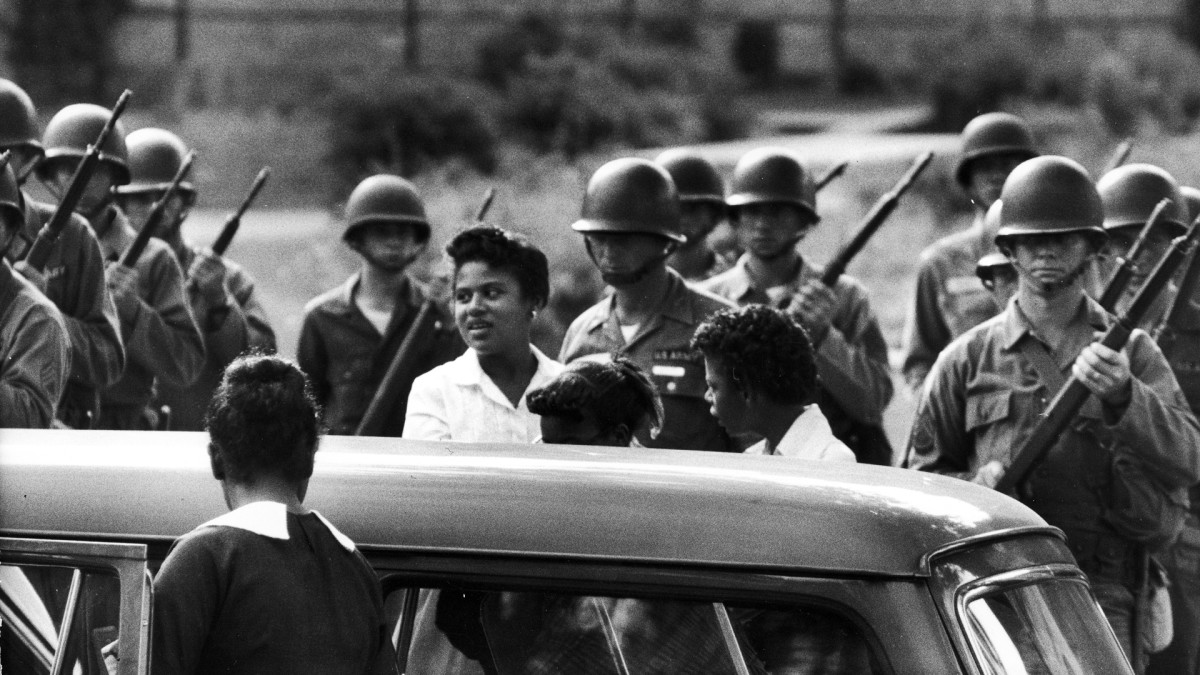 JI Military Police 3: U.S. Troops in Little Rock, Arkansas 1957 (History.com)
JI Military Police 3: U.S. Troops in Little Rock, Arkansas 1957 (History.com)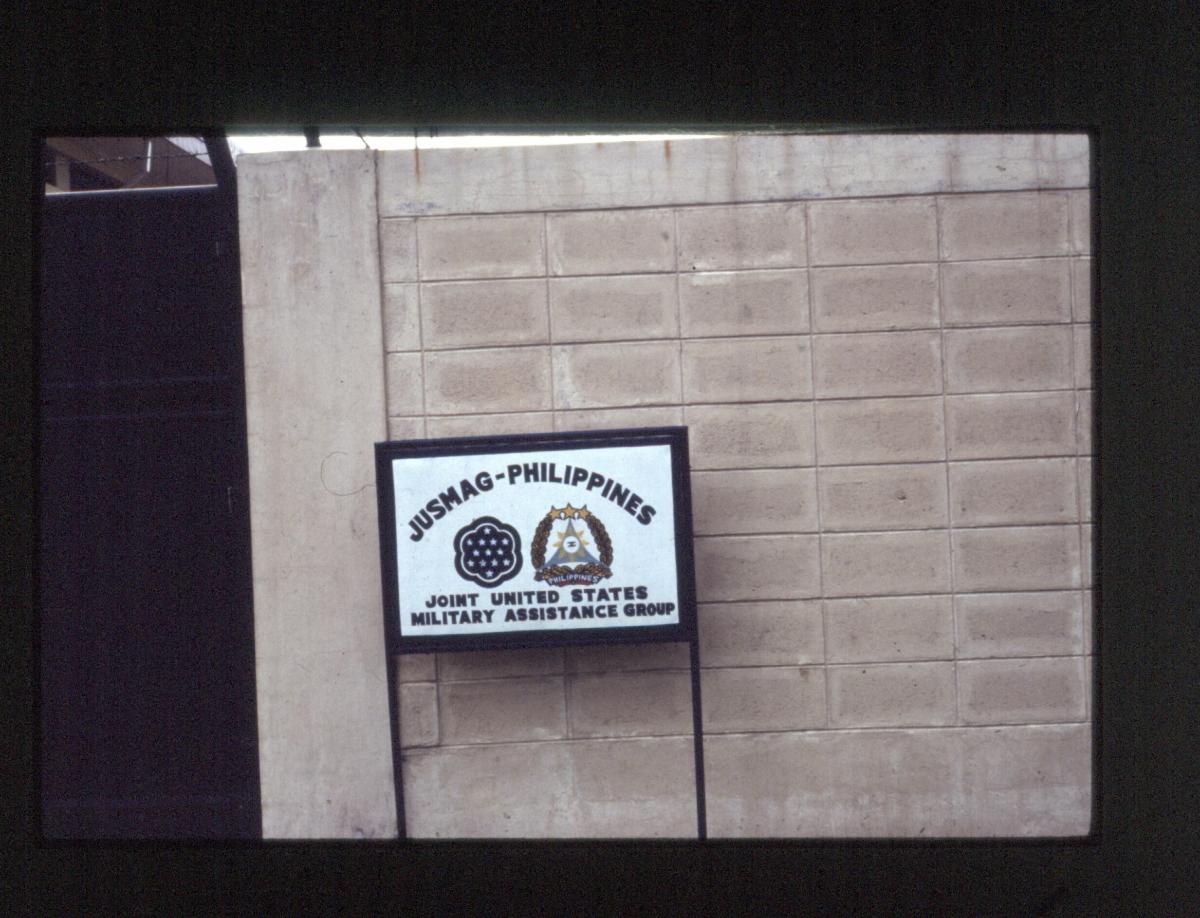 JUSMAG- Philippines headquarters in Manila 1989
JUSMAG- Philippines headquarters in Manila 1989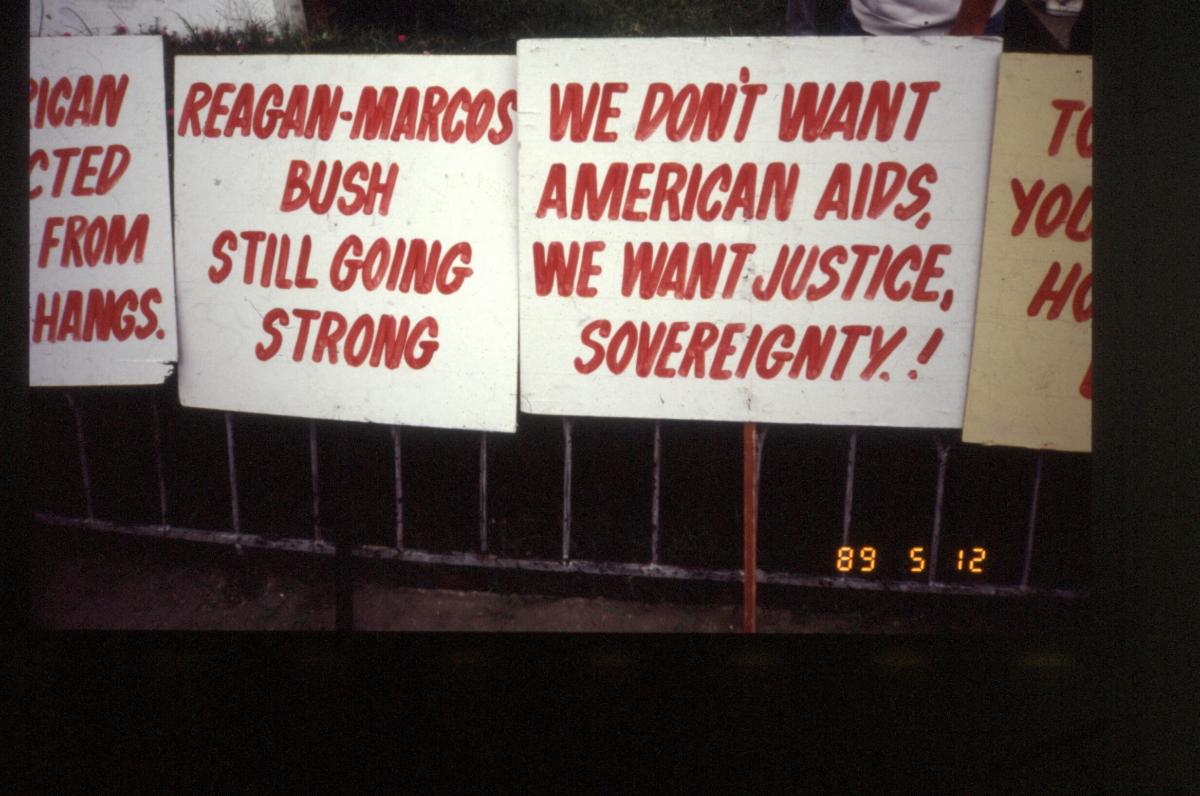 Signs in Manila, Philippines 1989 (Photo – Heather Gray)
Signs in Manila, Philippines 1989 (Photo – Heather Gray)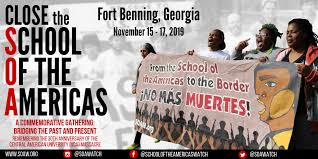
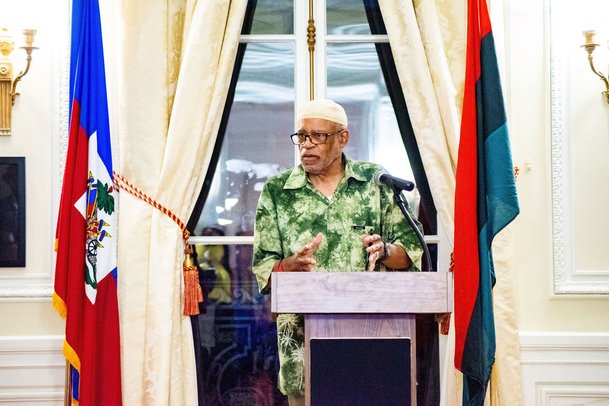 Dr. Conrad Worrill of Chicago, Illinois founding member and National Chairman of the National Black United Front (NBUF) from 1985-2009 has made his transition to the realm of the Holy African Egun (Ancestors). Our thoughts and prayers are extended to his wife Mrs. Talibah Worrill, his children, his brother, his grand-children and large extended family.
Dr. Conrad Worrill of Chicago, Illinois founding member and National Chairman of the National Black United Front (NBUF) from 1985-2009 has made his transition to the realm of the Holy African Egun (Ancestors). Our thoughts and prayers are extended to his wife Mrs. Talibah Worrill, his children, his brother, his grand-children and large extended family.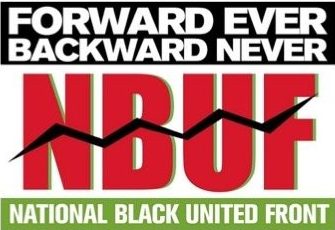 As a scholar/activist Chairman Emeritus Dr. Worrill placed a meticulous focus on organizing African people, never too big to do the “little things” passing out flyers, setting up chairs and the like. While we believe in the collective, it is correct to say that more than other single people he is the reason NBUF has lasted for 41 years.
As a scholar/activist Chairman Emeritus Dr. Worrill placed a meticulous focus on organizing African people, never too big to do the “little things” passing out flyers, setting up chairs and the like. While we believe in the collective, it is correct to say that more than other single people he is the reason NBUF has lasted for 41 years. By now, we have all seen the images and the videos. We have read the articles. we have heard the analyses of the news reporters, the community activists and the politicians. Some of you have probably seen everything we’re about to recount in this post. We are certainly aware of the incident that sparked all the grief over the past week, despite the ongoing concerns about the Covid-19 Coronavirus. None of us have been able to escape the upheaval that has followed in the wake of the murder of George Floyd by four Minneapolis police officers, whose knees compressed his neck and torso for over nine minutes until he died, pleading for breathing room and calling for his deceased mother, cries that went callously unheeded by his killers in blue. Bystanders who pleaded with the officers to allow Floyd to breathe were similarly ignored.
By now, we have all seen the images and the videos. We have read the articles. we have heard the analyses of the news reporters, the community activists and the politicians. Some of you have probably seen everything we’re about to recount in this post. We are certainly aware of the incident that sparked all the grief over the past week, despite the ongoing concerns about the Covid-19 Coronavirus. None of us have been able to escape the upheaval that has followed in the wake of the murder of George Floyd by four Minneapolis police officers, whose knees compressed his neck and torso for over nine minutes until he died, pleading for breathing room and calling for his deceased mother, cries that went callously unheeded by his killers in blue. Bystanders who pleaded with the officers to allow Floyd to breathe were similarly ignored.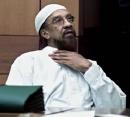 The Wednesday, May 20, 2020 edition of George Jackson University Radio (
The Wednesday, May 20, 2020 edition of George Jackson University Radio (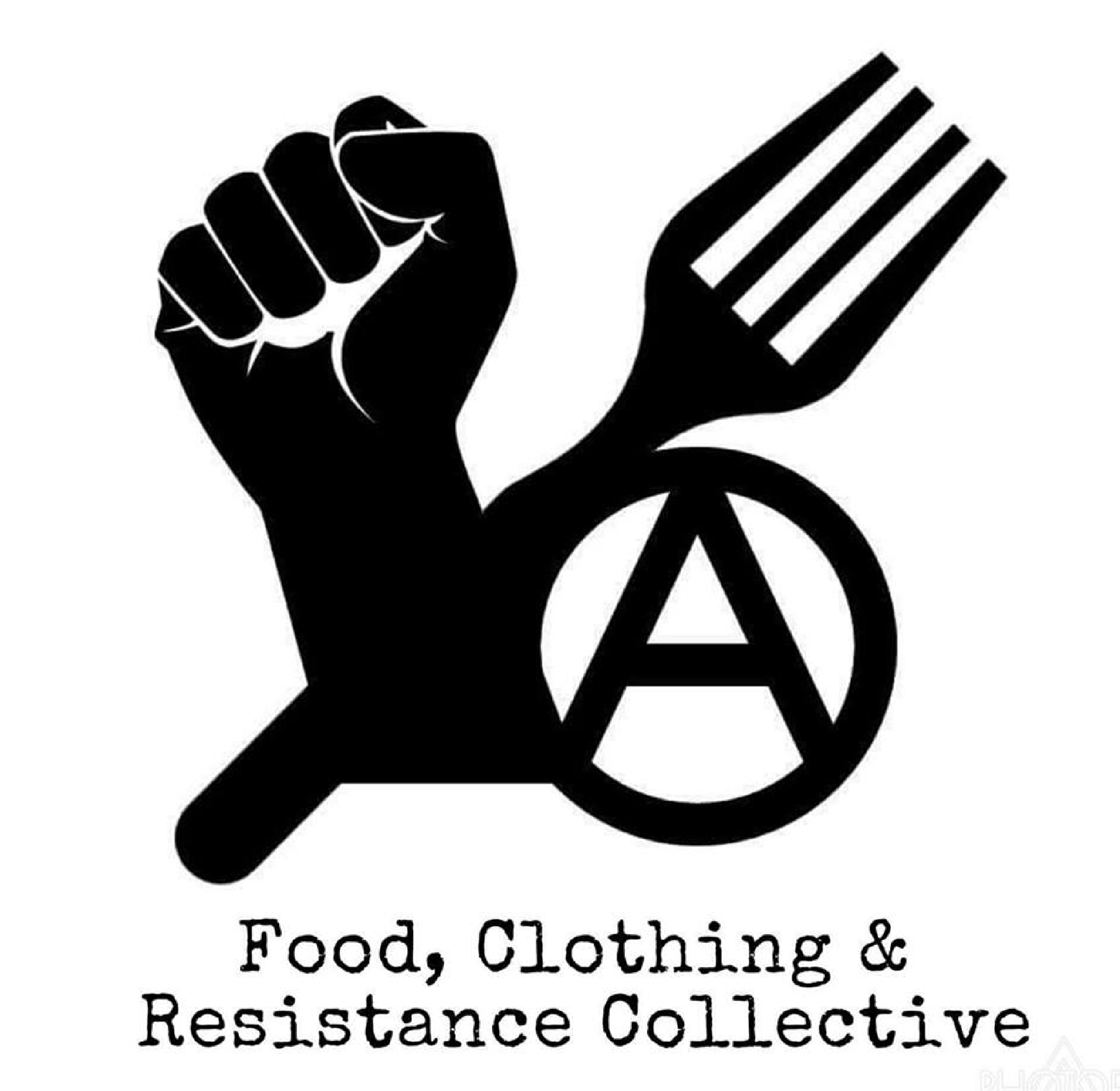 aid & emergency relief fundraising drive, and pop-up distributions, for anyone who may need some “extra assistance” to stock up food, toiletries and medical supplies in Baltimore during this still very early stage of an emerging pandemic (Covid-19), in the middle of another pandemic (Influenza).
aid & emergency relief fundraising drive, and pop-up distributions, for anyone who may need some “extra assistance” to stock up food, toiletries and medical supplies in Baltimore during this still very early stage of an emerging pandemic (Covid-19), in the middle of another pandemic (Influenza).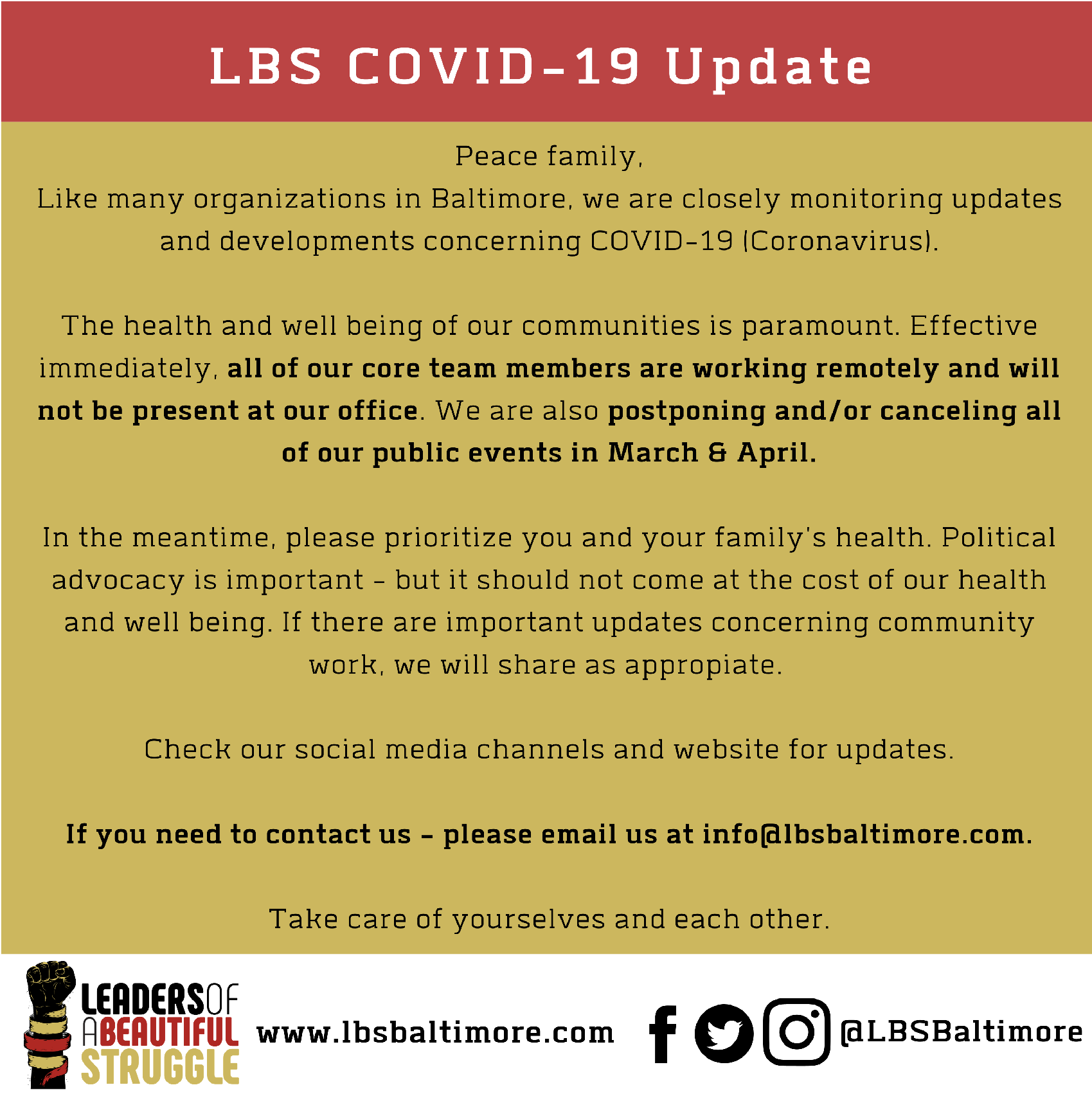
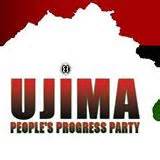 the COVID-19 outbreak, and has posted video discussions of the issues surrounding universal healthcare, the for-profit sick-care system and the marginalization of the efforts of nations like Cuba, which not only welcomed a United Kingdom cruise ship into its harbor to assist in treating several Covid-19-positive passengers according to an article on the Web site of The Independent (
the COVID-19 outbreak, and has posted video discussions of the issues surrounding universal healthcare, the for-profit sick-care system and the marginalization of the efforts of nations like Cuba, which not only welcomed a United Kingdom cruise ship into its harbor to assist in treating several Covid-19-positive passengers according to an article on the Web site of The Independent (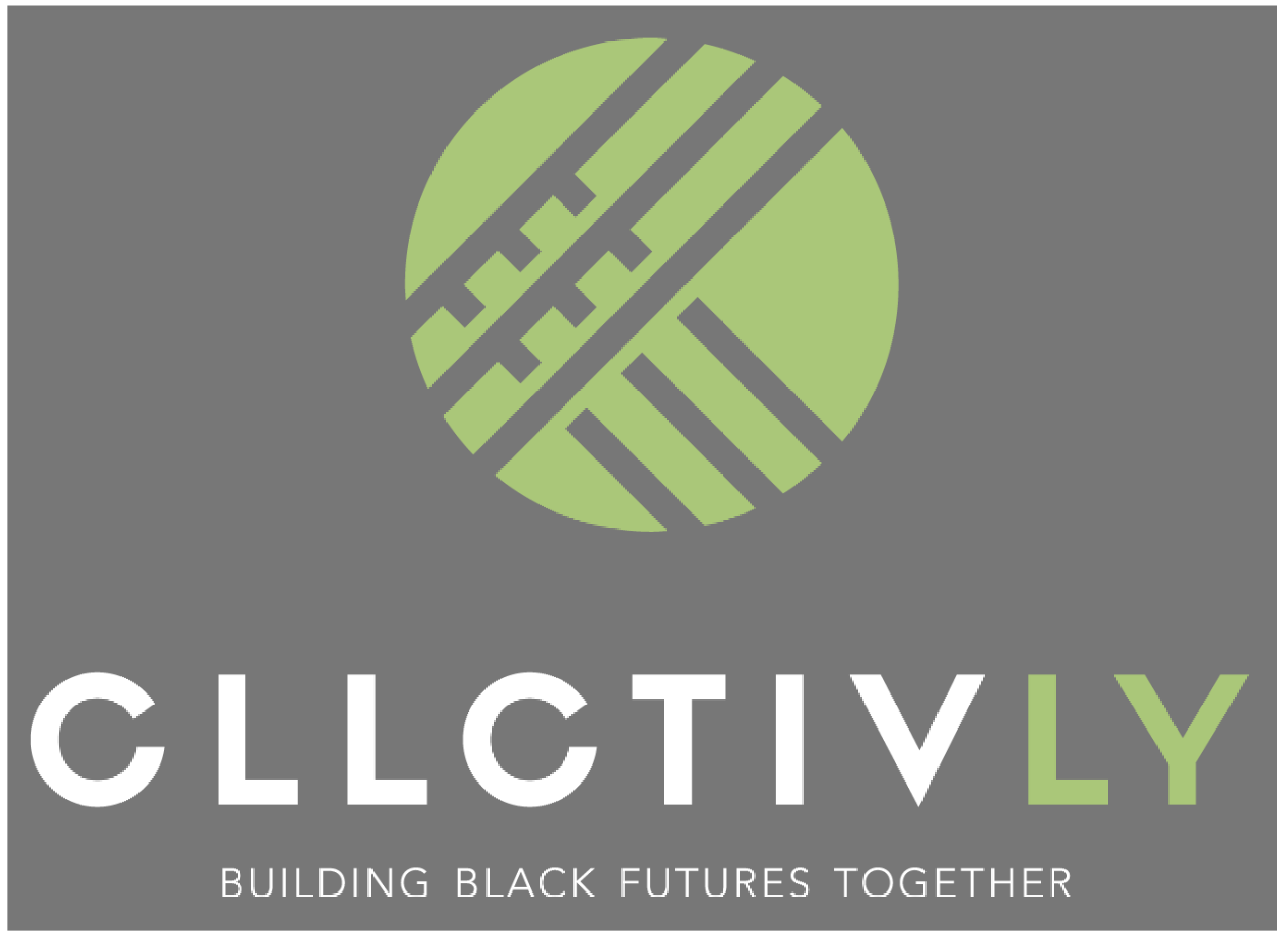 especially in the area of cooperatively pooling and sharing resources and energy. In many ways, CLLCTIVLY seeks to establish a spirit consistent with that of the Cooperative Coalition we have often discussed and sought to establish in the Baltimore, Maryland area (See the “Spokes of the Wheel” article elsewhere on this site) and of the more global Pan African Diaspora Union (PADU) which was pursued in 2011-2012 to unite Afrikan-centered organizations from across the United States and in Afrika, Europe, Central America, South America and the Caribbean. This is CLLCTIVLY’s statement explaining its founding:
especially in the area of cooperatively pooling and sharing resources and energy. In many ways, CLLCTIVLY seeks to establish a spirit consistent with that of the Cooperative Coalition we have often discussed and sought to establish in the Baltimore, Maryland area (See the “Spokes of the Wheel” article elsewhere on this site) and of the more global Pan African Diaspora Union (PADU) which was pursued in 2011-2012 to unite Afrikan-centered organizations from across the United States and in Afrika, Europe, Central America, South America and the Caribbean. This is CLLCTIVLY’s statement explaining its founding: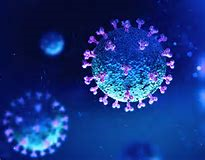 The onset of the Covid-19 or “Coronavirus” pandemic has shocked communities around the world. It has taken governments by surprise and provoked responses that have in several cases only served to make the situation worse in their effort to either deny the seriousness of the contagion or conceal their own negligence in the spread of the disease. Meanwhile, as citizens of the world’s affected countries struggle to make sense of the crisis, some have led themselves and others down the gardsen path of conspiracy theory, paranoia and xenophobia. The possibility that some of their suspicions may have merit does not change the fact that turning on one another is perhaps the worst response to what threatens to rival the 1918 flu pandemic in its potential to kill millions of people, perhaps due to misinformed and panicked reactions to what might otherwise be a manageable crisis.
The onset of the Covid-19 or “Coronavirus” pandemic has shocked communities around the world. It has taken governments by surprise and provoked responses that have in several cases only served to make the situation worse in their effort to either deny the seriousness of the contagion or conceal their own negligence in the spread of the disease. Meanwhile, as citizens of the world’s affected countries struggle to make sense of the crisis, some have led themselves and others down the gardsen path of conspiracy theory, paranoia and xenophobia. The possibility that some of their suspicions may have merit does not change the fact that turning on one another is perhaps the worst response to what threatens to rival the 1918 flu pandemic in its potential to kill millions of people, perhaps due to misinformed and panicked reactions to what might otherwise be a manageable crisis. 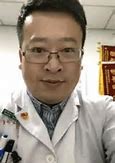 Dr. Li Wenliang (right), a doctor at Central Hospital of Wuhan and one of the first to warn others about the disease, sadly contracted COVID-19 himself and later died.
Dr. Li Wenliang (right), a doctor at Central Hospital of Wuhan and one of the first to warn others about the disease, sadly contracted COVID-19 himself and later died.